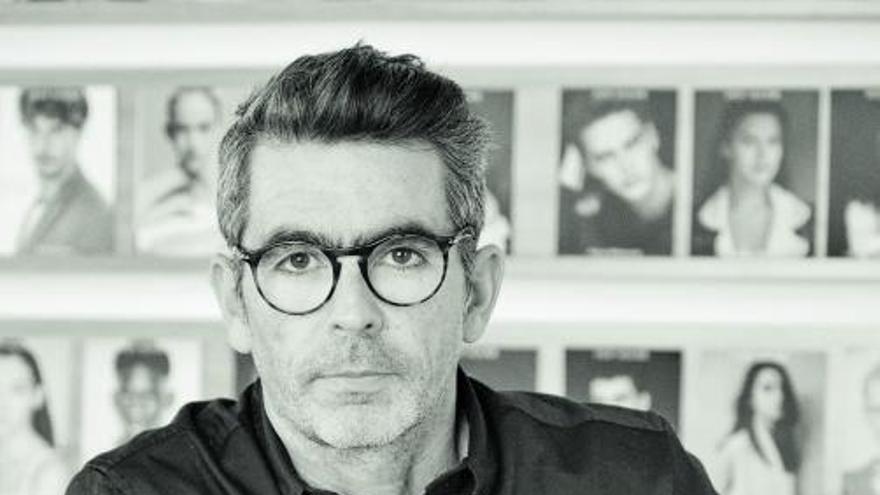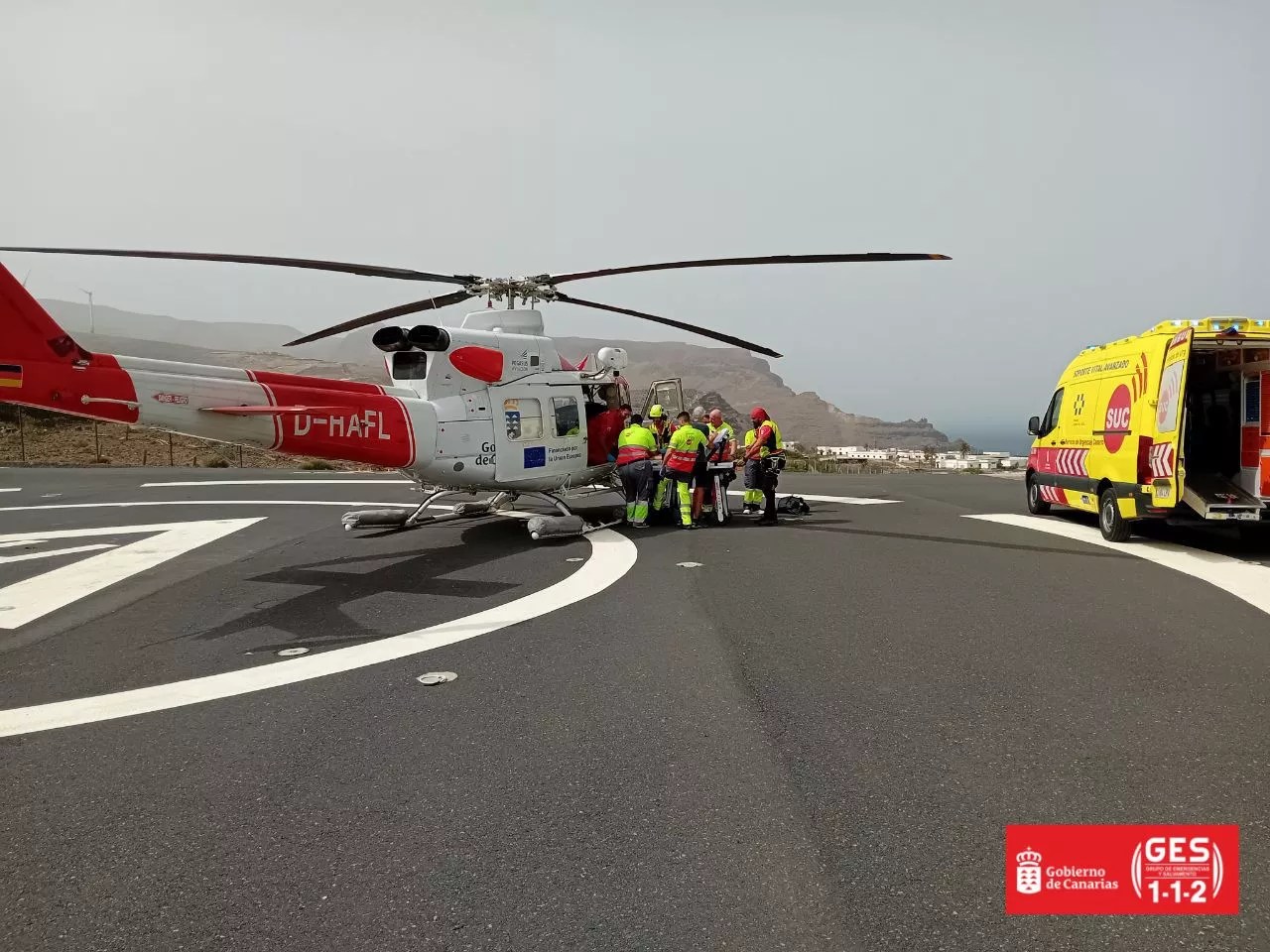
Image and fashion have always been two constants in the life of Lartaun Pérez (The Gran Canarian palms, 1970) but for almost two decades the combination of both has become his way of life. Graduated in Advertising from the Complutense University of Madrid, this professional from Gran Canaria is the CEO of Pop House, a Canarian fashion representation and production agency based in Santa Cruz de Tenerife and the palms of Gran Canaria. Going through the 17 years of Pop House’s life with him also means going through the evolution of this sector in the Archipelago during the last two decades. “We have gone from nothing to everything,” he summarizes at one point in the interview.
How, when and why did you decide to create a modeling agency in Canary Islands and unite representation with production?
It arose in a casual way as a result of my relationship with my ex-partner, who is a photographer and I gave him a hand when commissions arose and I had to look for models, transportation, a make-up artist… Everything on a small scale and very domestic; we did it almost by intuition. I came from living in Madrid, and as a disc jockey I had made music in various parades of what was then called Pasarela Cibeles. It turns out that usually the DJ booth is always in the backstage, so I saw everything from the inside; that was my university.
It is also fair to mention that as soon as I returned to Gran Canaria from Madrid, the first thing I did was go talk to Mogo and Yoya, from International Up, and when I told them that I had been DJing on fashion catwalks, they replied that they had a project and they were going to count on me.
What project was it?
Of Warm Fashion. It was the beginning of Moda Cálida and for ten seasons I was the official DJ of the catwalk, but not only did I dedicate myself to putting on music, but I ended up doing a stage manager, collaborating and helping with everything… It really is in the back room of Moda Cálida where I finished training. There I learned the language of models: what they were, how to treat them and how their careers were managed, how the needs of this type of professional were managed… And I also discovered everything that revolved around a fashion production and that they are no longer just the models, but also the stylists, photography assistants, makeup artists…
What was the situation like back then?
Very different from the current one. At the beginning, when clients began to come to the Canary Islands, they did not trust the professionals that existed here. They doubted that there were people prepared for the level of an international production. At that time, what they asked for was a van, a driver, an electric generator and two coat racks.
Over time, the Islands have put their batteries to levels of international fashion production; there are more and more professionals trained in all areas and the reality is that now the brands that come to the Canary Islands to make these productions only bring the most important people such as the photographer or the art director; the rest, from photography assistants, pagers, makeup artists, they have them here. What also means lower costs. At Pop House we have witnessed throughout these 17 years how a network of professionals has been created who can attend a production of this level and, also, that the big brands already place us at the level of other usual places of fashion production such as South Africa, Miami, Portugal… Before, what we had were only wonderful locations, our great wealth.
In the end, everything translates into the professionalization of a sector that before in the Canary Islands was seen as a hobby. We all have a friend or friend who has taken their first steps on the catwalks or starred in an advertising campaign, almost for fun. Is that not so?
Absolutely. In the past, in the Canary Islands, people worked a lot out of cronyism, but now we deal with clients with whom you can’t risk it, because they are extremely demanding. Today, for example, when you propose a photo assistant, it’s about offering a collaborator for a top photographer used to doing Vogue or working on Balenciaga campaigns, and you can’t put an assistant fresh out of school. They must be people with a proven track record, responsible and who have a portfolio in good condition.
Everyone we are going to hire is asked for a portfolio, which is their resume, as is also the case with models. This is something that some Canarian professionals have been slow to internalize. When we requested this requirement from the agency, some took it almost as a whim of ours: «Look at these now, telling me to send them a resume when I have been doing makeup for a bride every weekend for five years and doing dozens of galas Carnival».
Working as a carnival or bridal makeup artist is something very respectable, but it has nothing to do with the work that a makeup artist performs in a fashion campaign, where other codes are handled.
Do you already notice a change of attitude in these professionals today?
Although now the situation has changed, there are still departments with a shortage of professionals, for example set designers. When a fashion firm asks me for a set designer for a production, they are not looking for a seasoned professional in film shooting, of which there are a significant number of quite good ones in the Canary Islands. They require us to demonstrate experience in fashion campaigns and editorials. Whoever has such a profile can work on the islands daily if he wishes.
It is something that must be addressed without complexes, and in this case I am specifically speaking about our experience at Pop House, where starting from nothing we have become more and more professional.
He says that a professional from any of these fields can work every week in the Islands. Is it a rare week that there is not a high-level fashion production in the Canary Islands?
Exactly.
And what is that for?
In recent years there have been two very important changes in the world of fashion and the first is the appearance of Inditex. The stores and the volume of garments sold by this company have radically changed the sector and its way of understanding and working worldwide. Before, the firms presented two collections a year: spring-summer and autumn-winter. There were six months to work on and photograph them, but now the pace of production of the different brands that the multinational brings together is dizzying, because new collections are marketed every week. This implies a new rhythm when it comes to making productions to be able to have new images every fortnight and, logically, the rest of the brands that claim to be the competition of the Inditex firms have no choice but to match the presentation of their garments to the advertising beat. imposed by Zara, Pull&Bear, Massimo Dutti… The other change occurred mainly as a result of the pandemic: the growth of online sales. A service that also forces brands to have a lot of photographic material so that those who opt for this type of purchase have enough images to know and find out what items the firm offers.
Has this new constant need of the fashion industry when it comes to producing photographic material affected the Canary Islands?
Of course. This change that occurs during the pandemic, a period of hiatus of almost a year that in the case of Pop House, like so many other companies, caused us enormous damage, from which it is fair to say that we were able to get out thanks to the aid and support plans activated by the different institutions and the collective effort of society. It resulted in an increase in brands interested in carrying out their photographic productions in the Canary Islands. In our case, as soon as the restrictions derived from the health crisis and especially those related to mobility came to an end, we have not stopped working.
And the Islands, what do they contribute to this new scenario?
We are no longer just a place with idyllic corners where you can do photo shoots and a climate that allows you to do a summer fashion editorial in the middle of winter, with a model in a bikini or a short T-shirt that could not be carried out in, for example, Norway. The Canary Islands offers a wide range of highly qualified companies and professionals in all areas related to fashion production, which positions us as a reference region.
















